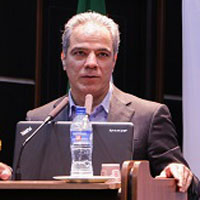Collaborative Governance: A Solution for Addressing Iran’s Water Issue – Identifying Components and Developing a Framework
The water scarcity issue in Iran has transformed into a complex challenge, necessitating innovative solutions for its resolution. However, no solution, even with innovation, can be guaranteed as absolute. Hence, collaboration among institutions and stakeholders in prioritizing and devising effective solutions becomes a pathway to getting closer to addressing the issue. This research examines collaborative governance as a solution for the water problem in Iran. The main objective of this paper is to identify components and develop a comprehensive framework for collaborative water governance in Iran. From a framework development perspective, this research is considered foundational, but due to its practical problem-solving contributions, it also falls into the category of applied research. To achieve this goal, a descriptive research approach was employed, involving interviews with 18 water governance experts. The data were analyzed using thematic analysis. The subject scope of this study encompasses an examination of collaborative water governance from context to outcomes, with a temporal scope covering the literature on water governance in Iran over the past two decades. The main components identified include “context”, “drivers”, “principled engagement”, “shared motivations”, “capacity for joint action”, “tensions”, and “outputs”, with 32 sub-components extracted. Ultimately, this study indicates that collaborative governance must consider these components to facilitate the achievement of sustainable water resource goals through effective engagement and the cultivation of shared collaboration incentives.
-
Enhancing the Capacity of Policy Boards in Utilizing Policy Advisory Organizations: A Case Study of the Iran’s Cabinet Office
Golestan *, Ali Abdollahinasab, Mohammadhosain Shojaei, Meysam Narimani
Journal Strategic Studies of Public Policy, -
"Providing a Skill Training Model for Organizational Innovation in the Automotive Industry (Case Study: Saipa Company)"
Hamid Foroozanfar, Morteza Musakhani*, , , Gholamreza Memarzadeh Tehran
Journal of Skill Training, -
Social Dialogue of Decent Work fulfillment
Mina Mahmoudi, Mirali Seyyednagavi *, Syed Mahdi Alvani, Hossein Aslipour
Journal of Sociological Cultural Studies, -
self-organization insights for organizational change: A systematic literature review
Rouhollah Honarmand *, Habib Roodsaz, , Mohammadreza Saadi
Management Studies in Development & Evolution, -
“Rapid Response Research” Framework in Government Research Institutes; An Expert-Based Approach
Golestan *, Ali Abdollahi-Nasab, Mohammad Hosain Shojaei
Journal of Science & Technology Policy,





